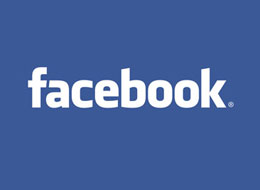In my last post I questioned the value given to Facebook in their IPO. It became clear at the close of first day trading that things hadn’t gone according to plan; the usual ‘Day One Spike’ associated with high profile technology IPOs just didn’t happen, and I have a feeling that the only reason that Facebook didn’t end the day lower than it did was because the underwriters of the IPO bought up stock to shore up the price.
Of course, that what the under-writers of IPOs are partially there for; they pick up the spare stock and keep the price up, but given that the slump has continued for two days trading now, I am beginning to wonder whether the initial price was artificially inflated for the egos / benefit of those involved. If so, that is totally unacceptable beccause it means that the ‘civilian’ buyers of the stock – those not in on the game – paid over the value of the company from day one, and it is increasingly possible (and indeed likely) that everyone involved in the launch KNEW that.
There is an interesting article here, by Michael Wolff, that states what quite a few of us have wondered for a while. Given that, beneath the hype, branding and bells and whistles, Facebook is an advert supported site, how on earth do they expect to make such money as a 100 billion dollar price tag suggests? And Wolff should know; he wrote the book ‘Burn Rate’, which documented the crash and burn of the first dot-com boom a decade ago.
The problem is that it’s not just Facebook at risk here; a bad IPO in a sector colours the views of those preparing other stock market launches. Out there are lots of technology start ups, all wondering about financing. A solid Facebook IPO would have possibly led to a market place that was more willing to put money in to smaller companies that needed much less money and that might even have been producing goods and services of greater value than the ability to play Farmville or post statuses. And by ‘solid’ I mean exactly that – a sound valuation – if the fall continues then it may well be that a valuation of 40 to 50 billion dollars was MUCH more realistic – that didn’t require urgent under-writer support, that showed healthy secondary trading over the days after launch and that also showed a steady growth as people realised that Facebook had some value that could be exploited – given availability of money. After all, that’s what an IPO was ORIGINALLY supposed to do – give some money to the founders but mainly give the company money to develop.
As it is, Facebook was clearly over-valued – whether by intention or accident we don’t know – and analysts are finally asking the questions that should have been asked months ago. Facebook’s last minute purchase of Instagram to try and grab mobile traction looks increasingly like panic. The company may settle down to around $50 billion dollars – still, IMO, overvalued but the markets could probably live with it.
But back to those other comanies in the wings. Based on previous technology trading cycles, a bad high profile IPO:
- Makes the companies queuing up to do an IPO pause in their tracks.
- Reduces the value of such IPOs and dents market confidence
- Causes investors in any technology companies to remember that there might be a downside risk and so be more careful about investing – which isn’t always a bad thing, but sucks if you’re a ‘real value’ company.
Historically this tends to lead to a deflation of the tech market place – the last thing we need now.
As is said in the Pythian Scrolls in Battlestar Galactica : “All this has happened before, and all this will happen again.”




 A few days ago I came across
A few days ago I came across  As anyone who’s ever heard me rant about the ‘numbers game’ side of networking – especially on sites such as Ecademy, Linked in or Facebook – will testify, I’m a great believer in quality rather than quantity, and until the software on such sites can do more for me than it currently does in terms of augmenting my memory and the cognitive abilities I apply when trying to remember ‘Is Fred interested in Mousterian Variability or is that Jill?’ then I use these sites to more conveniently keep in touch with roughly the same number of people I would via non computer based means.
As anyone who’s ever heard me rant about the ‘numbers game’ side of networking – especially on sites such as Ecademy, Linked in or Facebook – will testify, I’m a great believer in quality rather than quantity, and until the software on such sites can do more for me than it currently does in terms of augmenting my memory and the cognitive abilities I apply when trying to remember ‘Is Fred interested in Mousterian Variability or is that Jill?’ then I use these sites to more conveniently keep in touch with roughly the same number of people I would via non computer based means.